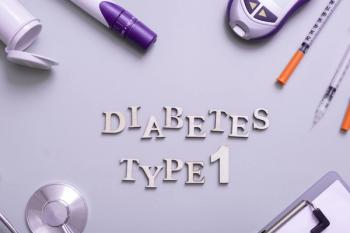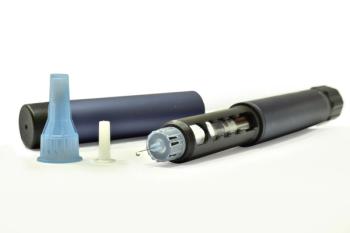
FDA Approves Oral Therapy for Lupus Nephritis
Voclosporin (Lupkynis; Aurinia Pharmaceuticals) is indicated in combination with a background immunosuppressive therapy for the treatment of active lupus nephritis in adults.
Officials with the FDA have approved Aurinia Pharmaceuticals’ voclosporin (Lupkynis) in combination with a background immunosuppressive therapy regimen for the treatment of active lupus nephritis (LN) in adults.
LN is one of the most serious and common complications of systemic lupus erythematosus (SLE), affecting an estimated 200,000-300,000 individuals in the US. It can cause irreversible kidney damage and significantly increase the risk of kidney failure, cardiac events, and death. With this approval, voclosporin is the first FDA-approved oral therapy for LN.
The approval is based on data from the phase 3 AURORA study and phase 3 AURA-LV study evaluating voclosporin in combination with standard-of-care (SoC) in patients with LN. Combined, these studies demonstrated the ability of treatment with voclosporin to significantly improve outcomes as reported up to 52 weeks for patients on several parameters when added to typical SoC, mycophenolate mofetil (MMF), and low-dose steroids.
A total of 533 patients with LN were randomized to receive either voclosporin 23.6 mg or placebo twice daily used with SoC. Patients were also dosed with concurrent MMF at a target dose of 2 g/day. Initial treatment with intravenous (IV) methylprednisolone up to a cumulative dose of 1 g was administered on days 1 and 2. All patients received a subsequent taper of oral corticosteroids. Patients started on a dose of oral prednisone at 20 mg/day for body weights less than 45 kg and 25 mg/day for patients with a body weight greater than or equal to 45 kg. The dose of oral corticosteroid was tapered down to achieve a target dose of 2.5 mg/day by week 16.
According to the results, patients treated with voclosporin in combination with SoC were more than twice as likely to achieve renal response and experienced a decline in urine protein creatinine ratio (UPCR) twice as fast as patients on typical SoC alone. Patients treated with voclosporin showed improved response rates in all parameters across immunologically active classes of LN studied.
The most common adverse reactions were decreased glomerular filtration rate, hypertension, diarrhea, headache, anemia, cough, urinary tract infection, upper abdominal pain, dyspepsia, alopecia, renal impairment, abdominal pain, mouth ulceration, fatigue, tremor, acute kidney injury, and decrease appetite.
“For years, treating patients with lupus nephritis has been challenging. We had a very limited number of therapeutic options, and these have been only modestly effective but highly toxic,” Brad H. Rovin, MD, professor of medicine and the director of the division of nephrology, Ohio State University Wexler Medical Center, and AURORA clinical trial investigator, said in a statement. “The FDA approval of Lupkynis allows us to treat patients safely and more effectively with a rapid acting therapy which requires far less steroids, something our patients will appreciate.”
Reference
- FDA Approves Aurinia Pharmaceuticals’ LUPKYNIS (voclosporin) for Adult Patients with Active Lupus Nephritis. News release. Aurinia; January 22, 2021. Accessed January 26, 2021.
https://www.multivu.com/players/English/8811951-aurinia-pharmaceuticals-lupkynis-voclosporin/
Newsletter
Pharmacy practice is always changing. Stay ahead of the curve with the Drug Topics newsletter and get the latest drug information, industry trends, and patient care tips.























